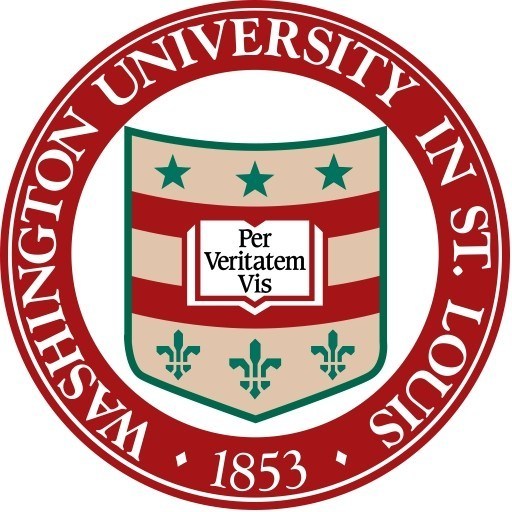Photos of university / #wustl_official
The Neurosciences program at Washington University in St. Louis offers a comprehensive, interdisciplinary education designed to prepare students for careers in research, medicine, or related fields focused on understanding the human brain and nervous system. This program integrates coursework from multiple departments including Biology, Psychology, Neurology, and Biomedical Engineering, providing students with a broad foundation in neurobiology, neuroanatomy, neurophysiology, cognitive neuroscience, and neuropsychology. Students have access to state-of-the-art laboratories and research facilities, enabling hands-on experience with cutting-edge techniques such as neuroimaging, electrophysiology, behavioral analysis, and molecular neuroscience.
The curriculum emphasizes both theoretical knowledge and practical skills, encouraging students to develop critical thinking, experimental design, and data analysis capabilities. Undergraduate students can engage in research projects under the guidance of renowned faculty members actively involved in pioneering studies exploring neural mechanisms, neurodegenerative diseases, sensory systems, and neurodevelopmental disorders. The program also offers seminars, workshops, and collaborative initiatives that foster an understanding of current challenges and advances in neuroscience.
In addition to the academic coursework, students have opportunities for internships, research assistantships, and participation in conferences, all aimed at enhancing professional development. The Neurosciences program prepares graduates for advanced study in graduate or medical schools or for careers in biotech, pharmaceuticals, healthcare, or science communication. With its interdisciplinary approach, experiential learning environment, and proximity to leading neuroscience research centers, Washington University’s Neurosciences program equips students with the knowledge and skills necessary to contribute meaningfully to the understanding and treatment of nervous system disorders and to innovations in brain science.
Core courses, taken in the first year of graduate study, provide an integrated, multidisciplinary view of modern neuroscience. First semester courses in Cellular Neurobiology (Bio 5571) and Fundamentals of Molecular Cell Biology (Bio 5068) cover the essential principles of electrophysiology, molecular neuroscience, neurohistology, and neural development. Second semester courses Neural Systems (Bio 5651) covers systems neuroscience and the neurobiology of disease and 1st Year Fundamentals (Bio 5646) introduces elementary statistical analysis and an introduction for grant-writing.
In their second year, students take a short course in Oral Presentation of Scientific Data (Bio 5565), which provides training in teaching and lecturing, and a course in scientific ethics.
This curriculum provides students with exposure to the full breadth of the discipline, and provides a solid foundation for laboratory research and advanced training in specific areas. The comprehensive coverage is especially helpful for students entering with limited experience in biology, such as those with backgrounds that emphasized computer science, engineering, chemistry, or psychology.
Specialized elective courses are offered to advanced students in later years of their training.
Through rotations, students gain experience in a variety of research approaches and techniques. Following two to three rotations of 10 to 12 weeks each, students have greatly broadened their expertise and are in an ideal position to choose the most suitable laboratory for thesis work.
Requirements
- Demographics
- Three letters of recommendation
- Academic history
- Test Scores
- GRE
- TOEFL (if applicable)
- Two essays and a 10 word research description
- Listing of Major coursework
- Work history
- Awards/Honors
- Publication list (if any)
- Payment of $45 application fee by credit card as part of the on-line application or obtain a fee waiver (please see fee waivers FAQ for additional information).
Scholarships
- Chancellor's Graduate Fellowship Program
- Need-based financial aid assistance
- Merit-based scholarships
- McDonnell International Scholars Academy
The Neurosciences Program at Washington University in St. Louis is a highly multidisciplinary and comprehensive graduate program designed to prepare students for research careers in the neurosciences. The program offers a rich environment that integrates various fields such as molecular, cellular, systems, behavioral, and cognitive neuroscience, providing students with a broad foundation and specialized expertise. Students typically engage in rigorous coursework, cutting-edge research projects, and collaborative learning experiences that foster innovation and academic excellence. The program emphasizes a strong research orientation, enabling students to work closely with renowned faculty members who are leaders in their respective fields. Opportunities for participation in seminars, workshops, and conferences are integral parts of the curriculum, helping students stay updated with the latest scientific developments and network with experts from around the world. The program also encourages interdisciplinary approaches, often collaborating with departments such as Biology, Biomedical Engineering, Psychology, and Neurology, which enhances the depth and breadth of training. Graduates of the program are well-equipped to pursue careers in academia, industry, clinical research, or science communication. The institution provides state-of-the-art laboratories, resources, and funding opportunities to support innovative research. Overall, the Washington University in St. Louis Neurosciences Program aims to foster a vibrant scientific community committed to understanding the complexities of the nervous system and translating discoveries into meaningful benefits for health and society.



